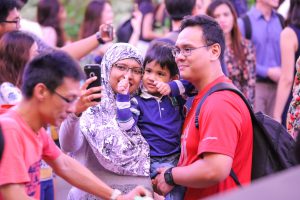Southeast Asian Family Dynamic Study
September 22, 2020

The 7th Association of Southeast Asian Nations-United Nations (ASEAN-UN) Workshop-5th Regional Dialogue on Political-Security Cooperation was held in Hanoi on 3-4 December 2019. Senior officials and experts from ASEAN and UN discussed ways to facilitate support and cooperation to maintain peace and security in Southeast Asia (SEA) and internationally.
Peace and security are not the only concerns that ASEAN nations face. Most nations are undergoing similar demographic changes which present a new set of challenges for the future. Due to greater educational opportunities and economic development, fertility rates in each country are on a decreasing trend. Along with increased longevity due to advances in healthcare, populations are ageing across SEA. This can reduce workforce numbers and productivity, in turn raising the importance of human capital development among the younger generation. Professor Wei-Jun Jean Yeung (NUS Sociology and Centre for Family and Population Research (CFPR)) is leading a research project titled “Southeast Asian Family Dynamic Study” to further and deepen understandings of such demographic trends and patterns in SEA.
The project is divided into two parts. In Part 1, Prof Yeung compares the evolving marriage, fertility, and household structures in SEA since the 1960s by examining indicators such as singlehood rates, divorce rates, fertility rates, household types, and living arrangements – particularly of older people. Meanwhile, Part 2 looks more towards human development as Prof Yeung focuses on indicators of child health, child poverty, literacy, and time use. Data for this research are sourced from the World Bank, United Nations, ASEAN, and the respective countries’ statistical offices.
